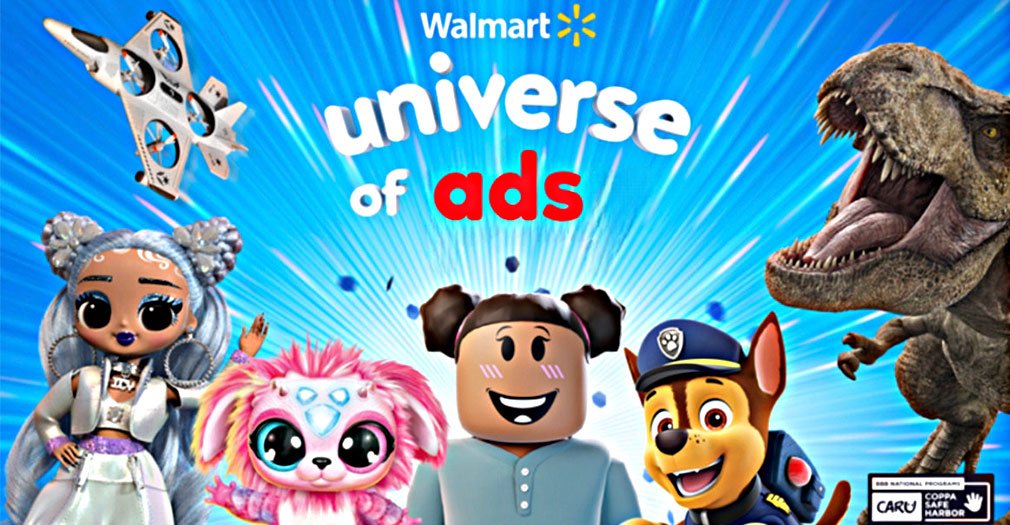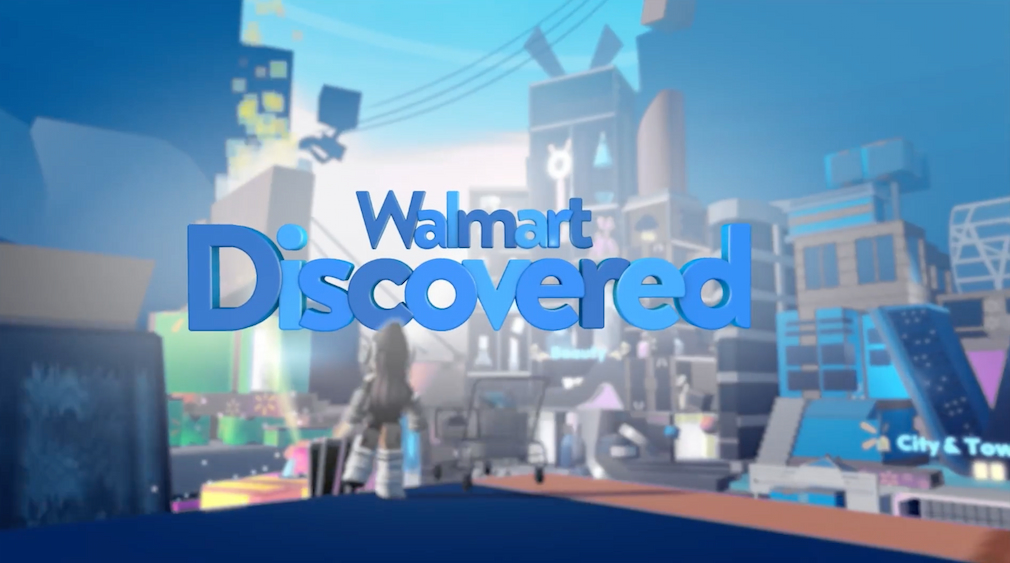
Worst False Ad Settlements of 2023
Class-action settlements that left consumers behind this year.
Universe of Play's removal follows action led by TINA.org – and inaction from self-reg group.
|
Editor’s Note: Updates have been posted at the end of this article.
After a splashy announcement and a monetary investment on the part of the mega retailer, Walmart Universe of Play – an advergame targeted at young children – has left the Roblox metaverse just six months after it arrived.
Last September, Walmart announced the launch of the immersive experience in a press release that made clear its intent to target younger consumers on Roblox. In the release Walmart touted Universe of Play as “the ultimate virtual toy destination,” with products and characters from kid-friendly franchises Paw Patrol, Jurassic World, L.O.L. Surprise! and more.
Then, in December, perhaps to allay parental concerns about the commercial nature of the game, Walmart paid to join the Children’s Advertising Review Unit’s COPPA Safe Harbor Program, one of several programs approved by the FTC to ensure compliance with the Children’s Online Privacy Protection Act (COPPA). This led to a CARU press release in which the self-regulatory group represented that Walmart Universe of Play was not only compliant with the child’s privacy law, but advertising laws as well.
Companies who participate in CARU’s COPPA Safe Harbor Program also comply with CARU’s Advertising Guidelines – a set of standards for advertising that help ensure advertising directed to children is not deceptive, unfair, or inappropriate.
Walmart, meanwhile, boasted about its membership on its website and added the program’s seal to the game’s thumbnail image.
But there were two problems with CARU’s admission of Walmart Universe of Play into its safe harbor program.
The first was that CARU’s program – just like all COPPA safe harbor programs – isn’t authorized to provide companies safe harbors for advertising, only privacy (as the name of the program suggests). In other words, in announcing that Universe of Play not only complied with COPPA but with its advertising guidelines as well, CARU was overstepping the bounds of the authority bestowed upon it by the FTC and the COPPA safe harbor program. Why does that matter? Because companies and products approved by safe harbor programs are entitled to protections from FTC actions.
The second problem was that CARU was not only wrong about its authority but also wrong about Walmart.
In January, TINA.org, along with Fairplay, Center for Digital Democracy and National Association of Consumer Advocates, sent a letter to CARU (copying Walmart, Roblox and the FTC) notifying the group that Universe of Play was exposing children to deceptive and manipulative stealth marketing on Roblox. (The letter cited similar issues with another undisclosed advergame, Walmart Land.) Among other examples the letter noted how players are enticed to unwrap mystery gifts that are only disclosed as ads after opening (and then only in illegible black fine print).
Simply put, TINA.org and its partners warned, Universe of Play immerses children of all ages in a never-ending undisclosed advertisement, in violation of both FTC law and CARU advertising guidelines.
The groups urged CARU to conduct an immediate audit of the game and take appropriate action, noting that the COPPA seal sent the false message that the game is not deceptive, unfair or inappropriate for its target audience of young children, many of whom can’t identify even disclosed advertising, never mind advergames.
CARU didn’t see it that way.
The self-reg group stood by its decision to admit the game into its COPPA compliance program and grant it the use of its safe harbor seal, issuing a response that stated in part:
The combination of the use of Walmart’s logo, branding, trademarks, etc. throughout the game, and the fact that the game is modeled after Walmart’s popular Universe of Play catalog, demonstrates the commercial nature of the game, and provides users, including children, the visual cues they need to understand the experience is advertising.
Nevertheless, two months later, Walmart quietly removed Universe of Play from Roblox. Despite the pomp and circumstance that marked the game’s arrival and the regulatory steps the retailer took to insulate the game, Walmart said it discontinued the game “as planned.” CARU also said that the advergame’s removal was not a result of a review by the group.
Serious concerns remain
In a follow-up letter to CARU sent today, the advocacy groups, joined this time by Common Sense Media, expressed ongoing concern regarding the self-regulatory group’s COPPA safe harbor program. With regard to its rationale behind the decision not to audit Universe of Play, the letter noted that there are many experiences on Roblox featuring Walmart’s “logo, branding, trademarks, etc.,” most of which are not ads.
The letter also raised larger concerns about the broader implications of expanding the COPPA compliance program to include an advertising safe harbor that gives the misimpression that company advertising misconduct is shielded from FTC review, as well as approving products that operate on platforms like Roblox that have not themselves been reviewed or approved by the program. (Roblox is a member of the FTC-approved kidSAFE Seal Program, but not the CARU program)
It is also important to note that earlier this month, Roblox made substantive changes to its own advertising guidelines, many of which seem to be in response to a complaint TINA.org filed against the platform in 2022 over a failure to establish meaningful guardrails to ensure compliance with truth in advertising laws. This includes the following new ad policy:
Developers must clearly and prominently disclose to users when content is an ad using simple and understandable language. Reference to the name of an advertiser alone is insufficient. Examples of acceptable disclosure language include “ad,” “paid,” or “sponsored.” The disclosure should be in or near the advertising content and be noticed and understood by users.
Find more of our coverage on Roblox here.
UPDATES
5/16/23: CARU has determined that Roblox violated its Advertising Guidelines by failing to adequately disclose to children when advertising is present within experiences and videos on Roblox; and by failing to ensure that social media influencers clearly and conspicuously disclose their material connections to Roblox in a manner that is understandable to children. CARU recommended that Roblox ensure that proper disclosures are implemented. Roblox disagreed with some of CARU’s findings and recommendations but stated it would comply with CARU’s recommendations as they pertain to influencers. (Of note, CARU’s case decision does not disclose whether its Roblox investigation included an examination of either Walmart experience on the platform.)
4/25/23: CARU has edited its COPPA Safe Harbor Services webpage to more accurately describe its COPPA Safe Harbor Program. (See before and after.) Our original article follows.
Class-action settlements that left consumers behind this year.
Only users who are 13 and older can enter Walmart Discovered.
Peter Adams, Marketing Dive


